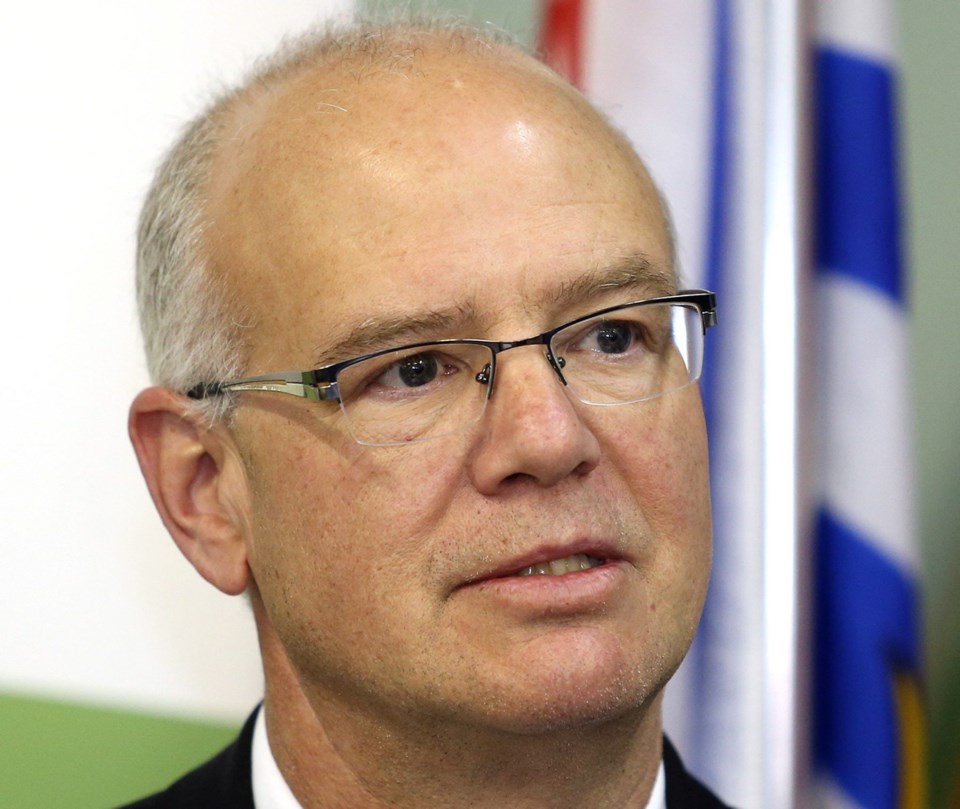Community acceptance for the idea of establishing a safe injection site in Victoria is growing, Mayor Dean Fortin said Thursday.
“The community seems more attuned to moving to that,” Fortin said after councillors heard from Island Health representatives about progress of harm-reduction initiatives aimed at the hard to reach, most of who suffer from both mental illness and addiction.
“It’s certainly something I’m hearing more and more support for,” Fortin said.
Fortin was remarking on the success of the Access Health Centre, 713 Johnson St., and Pembroke Services, 1125 Pembroke St. The two centres have been established as service hubs in the health authority’s outreach to the hard-to-reach street population.
The centres, along with other health units and hospitals throughout the region, have been distributing harm-reduction supplies such as clean needles — without a lot of associated street disorder.
Fortin said any safe consumption site in Victoria likely would be patterned after the Dr. Peter Centre in Vancouver.
“That’s been the successful one,” Fortin said. “That’s the one we’ve looked at as communities — the one we’ve visited. And it’s in the middle of a residential district right in the middle of Vancouver. Those are the ones that have been successful.”
Coun. Ben Isitt said he would support not only a safe consumption site but the provision of “substances” for consumption.
“The two points of harm that the current model addresses is transmission of disease from the drug paraphernalia and also moving beyond the alienation and isolation of the users by providing access to health professionals and other service providers,” Isitt said.
“But the harm it doesn’t address is the property crime problem and the whole impacts on the justice system and residents, the organized crime aspect and the public safety risks entailed and the health of users because of the uncertainty of the substances they are consuming.”
Isitt said Victoria has to be drawing from best practices and “aggressively pursuing” their implementation, and wondered when Island Health would apply to Health Canada for “at a minimum a safe consumption site and possibly exploring some supply of substance in that site.”
“Because there is a huge amount of our $47-million policing budget is going to these petty impacts of addiction, and if we’re serious about harm reduction, we have to be escalating our model aggressively.”
Cheryl Damstetter, Island Health’s executive director for Mental Health, Family and Public Health Services, said the health authority will not make any such application without consultation with the community.
Coun. Shellie Gudgeon said the emphasis can’t all be on harm reduction, and said she would like to see accessible treatment on demand.
“It might take six, eight times, 10 times through that cycle of treatment for them to be well and for them to be participating in our community,” Gudgeon said. “I don’t see that yet, when I look at Island Health, as part of the different conversations. Treatment is way off in part of a different wish world.”
Coun. Marianne Alto said there’s a “fairly advanced and relatively organized coalition of community-based groups” that is working to make a supervised consumption site a reality.
“That process is underway, and I would expect that this time next year we’ll be hearing some fairly positive reports about the process of that application,” Alto said.



